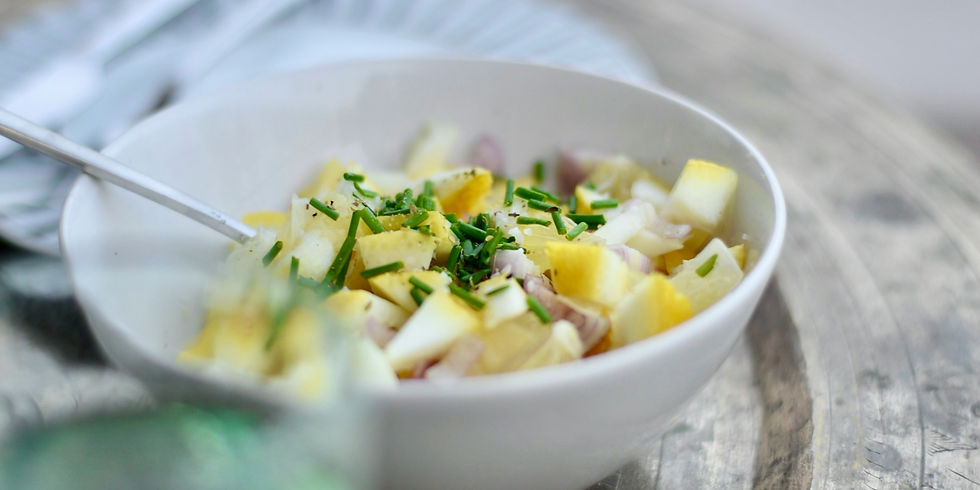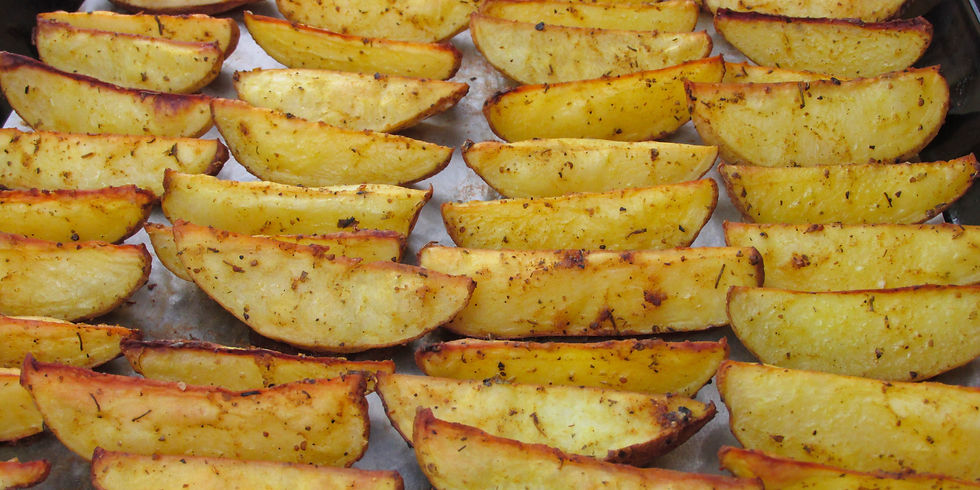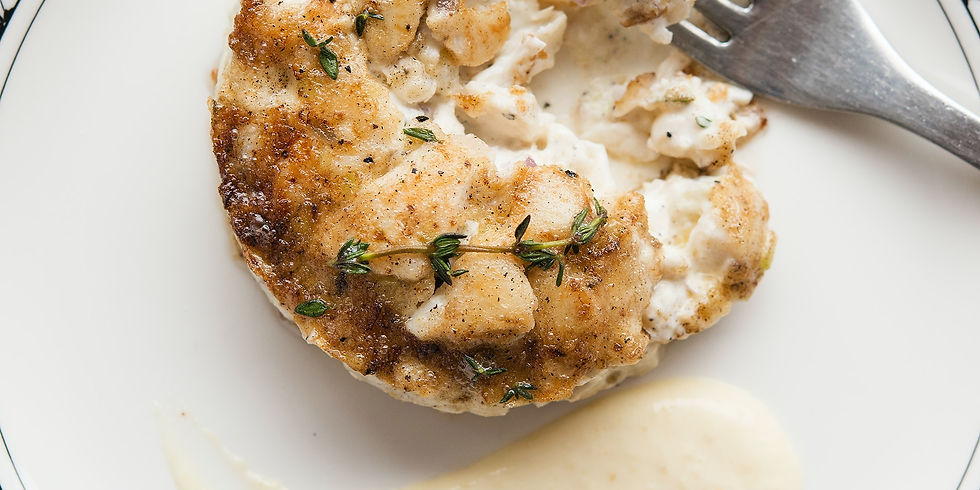The Truth About Potatoes: Health, Myths and Recipes
- Tracy Tredoux

- Aug 19, 2025
- 3 min read

Let’s be honest. Who doesn’t love a good potato?
Whether mashed, roasted, baked, or turned into golden wedges, the potato is one of the world’s most beloved comfort foods. But in the wellness space, potatoes have often been unfairly labelled as “bad carbs” or “blood sugar bombs.”
It’s time to set the record straight.
When prepared and eaten mindfully, potatoes can be nourishing, satisfying, and gut-friendly, even for those watching their blood sugar.
The Surprising Health Benefits of Potatoes

Potatoes aren’t just a starchy filler. They are a nutrient-rich whole food that provides:
1. Potassium powerhouse Potatoes are higher in potassium than bananas. This supports heart health, nerve function, and blood pressure regulation.
2. Rich in vitamin C
Particularly when the skin is left on. Just one medium potato provides about 30% of your daily vitamin C.
3. Excellent source of fibre Especially in baby potatoes and when cooked then cooled.
4. Source of resistant starch When cooked and cooled, potatoes develop resistant starch, a type of carbohydrate that:
Feeds beneficial gut bacteria
Helps regulate blood sugar levels
May reduce inflammation and insulin resistance
What Happens When You Cool Potatoes?
When you cook potatoes and then cool them down, especially overnight in the fridge, some of their digestible starches are converted into resistant starch.
This makes them:
Lower on the glycemic index
Less likely to spike blood sugar
More supportive of the gut microbiome
Even better, you can reheat them gently and the resistant starch benefits remain. So your baby potato salad or reheated roast potatoes still carry gut-healing potential.
Baby Potatoes vs Regular Potatoes
Baby (new) potatoes are:
Lower in total starch
Naturally lower on the glycaemic index
Often eaten with the skin on, which adds fibre and antioxidants
This makes them an ideal choice for anyone watching blood sugar, looking to support their gut bacteria, or simply aiming to keep energy levels steady.
Nourishing Potato Recipes
Baby Potato Salad with Herbs and Mustard

Ingredients
500g baby potatoes, boiled and cooled overnight
1 tbsp Dijon mustard
3 tbsp olive oil or avocado oil
1 tbsp apple cider vinegar or lemon juice
1 tsp raw honey (optional)
Handful of chopped parsley and chives
Sea salt and cracked black pepper
Method
Cut cooled potatoes in halves or quarters.
Mix dressing ingredients and pour over potatoes.
Toss with herbs. Serve chilled or gently warmed.
Crispy Sliced Roasted Potatoes

Ingredients
3 to 4 medium potatoes, sliced into ½ cm rounds
2 tbsp olive oil or ghee
Sea salt, rosemary, smoked paprika
Method
Preheat oven to 200°C (fan).
Lay slices on a baking tray lined with parchment.
Drizzle with oil and season.
Roast for 25 to 30 minutes, flipping once halfway, until golden and crisp.
Baby Potato and Herb Fishcakes

Ingredients
1 cup mashed cooked baby potatoes (cooled)
1 cup cooked flaked white fish (cod, haddock)
1 egg
1 tbsp chopped dill or parsley
Zest of 1 lemon
Salt and pepper
Method
Mix all ingredients well and shape into patties.
Chill for 15 minutes.
Pan-fry in olive oil or ghee until golden on each side.
Simple Baked Potato with Gut-Friendly Toppings

Ideas
Greek yoghurt, chives, and sauerkraut
Hummus, rocket, and roasted red pepper
Crushed avocado, pumpkin seeds, and sea salt
Cook the potato, cool overnight, and then reheat before adding toppings for maximum resistant starch.
The Good News
Potatoes are good on a low FODMAP diet, low histamine diet BUT they are part of a group of foods known as the ‘deadly nightshades.’ While they are not inherently harmful to everyone, those with autoimmune or inflammatory conditions may benefit from a trial elimination.
For most, however, well prepared potatoes can be a comforting, gut- supportive whole food.




Comments